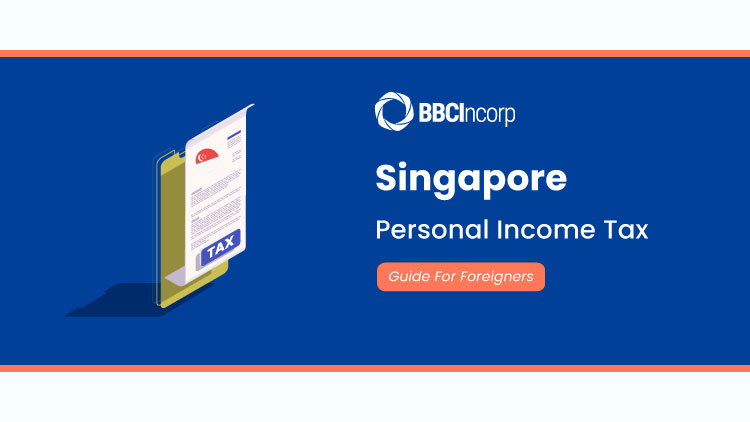Understanding the Income Tax Rate in Singapore for Expats: A Comprehensive Guide
Navigating the tax system in a foreign country can be challenging, especially for expats looking to work and live abroad. The income tax rate in Singapore for expats is one such area that requires attention and understanding to ensure a smooth transition into the country's financial ecosystem. This blog aims to provide an in-depth analysis of the Singapore personal income tax for expats, shedding light on essential aspects that can impact your financial well-being while residing in this bustling metropolis.
Overview of the Singapore personal income tax for Expats
Singapore is an attractive destination for many expats due to its low tax rates and simplified tax system. The Singapore income tax rate for foreigners is based on a progressive system, with rates ranging from 0% to 22%. It's important to note that only income derived from or accrued within Singapore is taxable, making it an even more appealing location for foreign professionals.
Expats earning an annual income below S$20,000 are not subject to any income tax. Beyond this threshold, the Singapore income tax rate for foreigners increases gradually. Here's a quick breakdown of the progressive tax rates for resident individuals:
S$20,001 - S$30,000: 2%
S$30,001 - S$40,000: 3.5%
S$40,001 - S$80,000: 7%
S$80,001 - S$120,000: 11.5%
S$120,001 - S$160,000: 15%
S$160,001 - S$200,000: 18%
S$200,001 - S$240,000: 19%
S$240,001 - S$280,000: 19.5%
S$280,001 - S$320,000: 20%
Above S$320,000: 22%
Expats who do not qualify as tax residents in Singapore are subject to different tax rates. Non-residents are taxed at a flat rate of 15% on their employment income or the progressive resident tax rates, whichever yields a higher tax amount. Director's fees, consultation fees, and other income earned by non-residents are taxed at a flat rate of 22%: https://bbcincorp.com/sg/artic....les/personal-income-
Tax Relief and Deductions
The personal income tax for foreigners in Singapore can be further reduced by various tax reliefs and deductions available to eligible taxpayers. Some examples of tax relief include earned income relief, spouse/handicapped spouse relief, child relief, and parent relief. It's important to assess your eligibility for these reliefs and deductions to minimize your tax burden effectively.
Filing Your Income Tax
The tax year in Singapore runs from January 1st to December 31st, and tax returns must be filed by April 15th of the following year. Expats need to ensure they adhere to these deadlines to avoid penalties and ensure compliance with tax regulations.
Conclusion
Understanding the income tax rate in Singapore for expats is essential to make informed financial decisions while living and working in this vibrant city. As an expat, it's crucial to choose a reliable partner for tax system consulting and company formation services in Singapore to ensure compliance with local regulations and optimize your tax situation.
BBCIncorp is a trusted name in providing comprehensive tax system consulting and company formation services in Singapore. With years of experience and expertise, BBCIncorp can guide you through the intricacies of Singapore's tax system and help you make the most of your expat experience. Contact BBCIncorp today to take advantage of their unparalleled services and achieve financial success in Singapore.
Contact Us:
BBCIncorp Pte. Ltd
Email: serviceBBCIncorp Group.com
Phone: +65 6011 8200
Address: 9 RAFFLES PLACE, #29-05 REPUBLIC PLAZA, SINGAPORE (048619)
Like
Comment
Share

